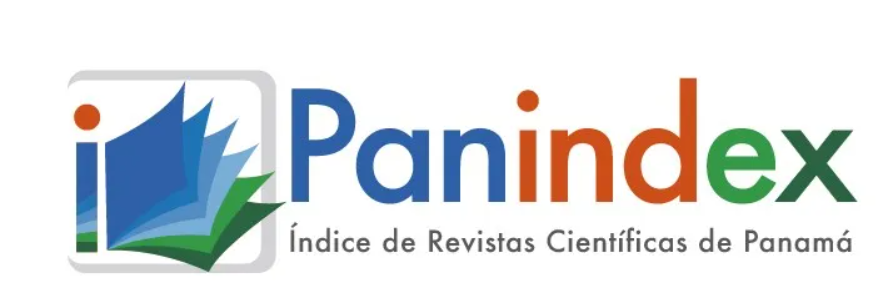The content of the publications and the links suggested in them are the sole responsibility of the authors and not of the METROPOLITAN UNIVERSITY OF EDUCATION, SCIENCE AND TECHNOLOGY (UMECIT) or CATHEDRA magazine. They are protected by international copyright laws just as the UMECIT and CATHEDRA logos, hence their reproduction is totally prohibited
This work is licensed under a Creative Commons Attribution-NonCommercial-NoDerivatives 4.0 International License.
The authors maintain the copyright and transfer the right of the first publication to the journal, with the article registered with Creative Commons Attribution-NonCommercial-NoDerivatives License, which allow others They can download the works published in this magazine and share them with other people, as long as their authorship is recognized, but they cannot be changed in any way nor can they be used commercially.
Authors are recommended to include their work in social networks such as Researchgate and institutional repositories once the article or visible fact has been published on the journal page, without forgetting to include the digital document identifier and the name of the journal.



Abstract
The main objective of the theme “human emails” is to determine the socioeconomic decision and other general aspects that facilitate or allow the implementation with greater frequency of the
use of human emails for illicit activities, likewise, the repercussion that this generates in society. In the same way, it will allow the Institutions in charge of control to contribute directly to eradicating this phenomenon that has been occurring within society, without distinction of social classes and taking low-income communities as a weak point. The sum of these factors makes the criminal organizations develop the maximum efforts to carry out this nefarious business and resort to different tactics to try to evade the controls. Due to the increase in people captured as human couriers, alarms go off in the authorities, forcing them to create and implement strategies or policies that contribute to the reduction of this scourge, since it is considered according to statistics that, for each mule captured, two achieve their objective. But the most important thing is not the capture, because these people are not part of the criminal organization, so drug trafficking is not being eradicated, but they are people outside the links that make it up. Finally, the problem lies in establishing whether the people who are used as human couriers are victims, participants or innocent.
Keywords
References
BARRERO, A. F. (13 de 08 de 2017). ASI ES COMO RECLUTAN LOS CORREOS HUMANOS QUE CAEN EN CHINA. EL PAIS.COM.CO, págs. http://m.elpais.com.co/ judicial/exclusivo-asi-es-como-reclutan-los-correos-humanos-que-caen-con-droga-en- china.html.
Collazos, M. (2006). www.marisolcollazos.es. Obtenido de www.marisolcollazos.es: http://www.marisolcollazos.es/victimologia/Victimologia-Concepto-de-victima.html
Colombia, T. d. (2000). “Primer Encuentro Nacional sobre Tráfico de Personas en
Colombia” 15,16, y 17 de noviembr. Bogotá, Colombia Pp.35.
Comisión Económica para América Latina y el Caribe. (22 de Noviembre de 2002). https://www.cepal.org. Obtenido de Comisión Económica para América Latina y el Caribe: https://www.cepal.org/celade/noticias/paginas/2/11302/ddr3-migracion.pdf
El Tiempo. (25 de 01 de 2018). El 84% de las víctimas por trata de personas son mujeres. El Tiempo.
elespectador.com. (s.f.). Obtenido de https://www.elespectador.com/noticias/nacional/
mulas-un-delito-no-da-tregua-articulo-528487
eltiempo.com. (s.f.). Obtenido de http://www.eltiempo.com/archivo/documento/MAM-494603'>http://www.eltiempo.com/archivo/documento/MAM-494603
Ilanud. (1988). Tesauro de política criminal latinoamericana. San Jose, Costa Rica.
Ochoa, W. M. (06 de 2002). https://www.google.com.co/search?ei=. Obtenido de www.
mamacoca.org/docs_de_base/Cifras.../Las_mulas_del_eje_cafetero_
Ochoa, W. M. (06 de 2002). mamacoca. Obtenido de www.mamacoca.org
Quiceno, M. M., Marulanda , J., Gómez Gómez, J., Galán Hernández, F., & Mendoza, J. (2004). NO seas Mula. Bogotá D.C: Diego Steve García García.
Semana. (s.f.). Semana.com. Obtenido de http://www.semana.com/nacion/articulo/el-
regreso-de-las-mulas/412819-3
tiempo, E. (s.f.). eltiempo.com. Obtenido de http://www.eltiempo.com/archivo/
documento/CMS-3852197
Fundación Esperanza (2001), Tráfico de personas en Colombia Memorias, Fundación
Esperanza. Bogotá 2001
Fundación Esperanza (2002), Tráfico de Personas, “Naufragio de los sueños”, Fundación
Esperanza, Bogotá 2002
Fundación Esperanza (2002), Tráfico Internacional de Mujeres Colombianas, Análisis
del tratamiento periodístico, Fundación Esperanza, 2002
Fundación Esperanza (2003), Trata de personas y Desplazamiento Forzado. Fundación Esperanza.
Downloads
Publication Facts
Reviewer profiles N/A
Author statements
- Academic society
- Universidad Metropolitana de Educación, Ciencia y Tecnología
- Publisher
- Universidad Metropolitana de Educación, Ciencia y Tecnología




















